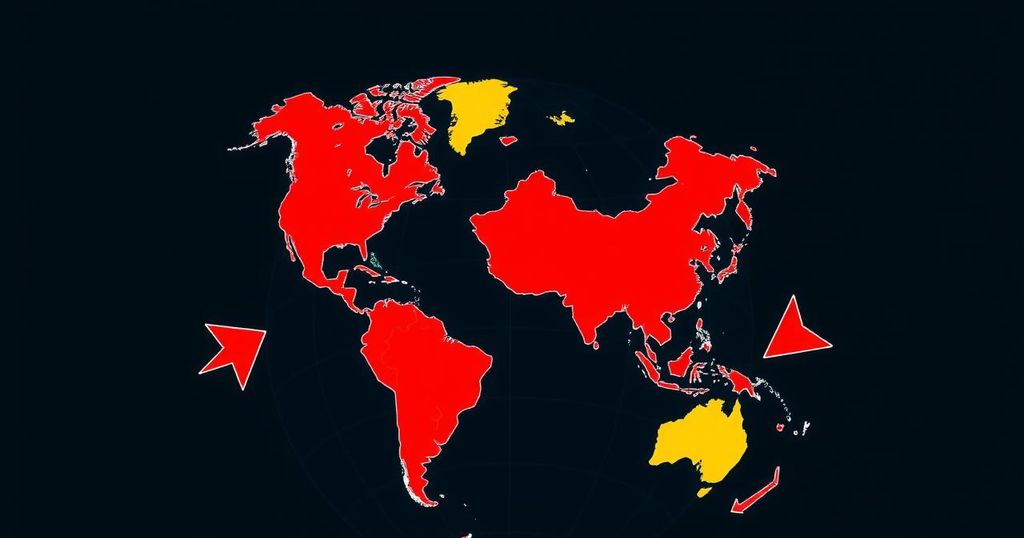Analysis of Tariff Priorities and Global Geopolitical Developments by Dhruva Jaishankar

Dhruva Jaishankar discussed the tariff priorities of President Trump, focusing on Canada, Mexico, China, and the EU, while noting India’s relative exemption. He expressed concerns over global reciprocal taxes and highlighted the potential for interim trade agreements. He also addressed the constructive nature of the Raisina Dialogue and the implications of the Russia-Ukraine conflict for global stability and cooperation.
On March 17, Dhruva Jaishankar, Executive Director of the Observer Research Foundation, highlighted the tariff priorities of President Donald Trump, specifically mentioning Canada, Mexico, China, and the European Union, while noting that India remains somewhat exempt. He expressed concerns about potential global reciprocal taxes impacting India, as the country has significantly higher tariffs than the United States.
Jaishankar indicated that the recent discussions between India’s Union Minister of Commerce and the US Trade Representative might lead to an interim agreement before April 2. He underscored the critical nature of trade negotiations and the potential repercussions of tariffs imposed by the US, emphasizing the need for both sides to engage constructively.
In his commentary on the Raisina Dialogue, which commenced on March 17, Jaishankar described it as an “important global forum” with over 100 sessions and the participation of 4,000 delegates. He highlighted the constructive tone of the event, contrasting it with other international conferences such as the Munich Security Conference.
The Raisina Dialogue aims to address vital geopolitical and geoeconomic issues, showcasing discussions on connectivity, trade, and the geopolitical shifts concerning Russia, Ukraine, and the Indo-Pacific region. Jaishankar noted that this conference has attracted global attention, serving as a platform for dialogue.
Jaishankar also addressed the current state of the Russia-Ukraine conflict, stating that Ukraine has proposed a ceasefire, placing the onus on Russia to respond. He mentioned the expectation of talks between President Trump and President Putin, emphasizing the significance of determining Ukraine’s status amid ongoing negotiations.
Regarding India’s potential intermediary role in the Russia-Ukraine conflict, Jaishankar remarked that while Saudi Arabia has facilitated dialogues, India is open to playing a role if both parties consider it beneficial. However, he noted the necessity of mutual agreement for such a role to be effective.
He pointed out that the ongoing peace process is uncertain and may become clearer in the coming days, following recent positive steps. Jaishankar indicated that challenges faced by the Global South, such as institutional reform, health, and food security, are critical for global stability and must be addressed effectively.
In conclusion, it is evident that Jaishankar’s insights underscore the complexities of current global trade dynamics, the potential impacts of US tariffs on India, and the importance of international cooperation in resolving conflicts and addressing pressing global issues.
In summary, Dhruva Jaishankar provided a comprehensive overview of the current trade priorities of the Trump administration, particularly concerning tariffs on Canada, Mexico, China, and the EU. The discussions around the Raisina Dialogue reflect a positive collaborative approach among global leaders to address significant geopolitical issues. Additionally, his perspectives on the Russia-Ukraine conflict and the challenges faced by the Global South highlight the need for strategic dialogue and cooperation among nations to foster stability and mutual growth.
Original Source: www.business-standard.com








